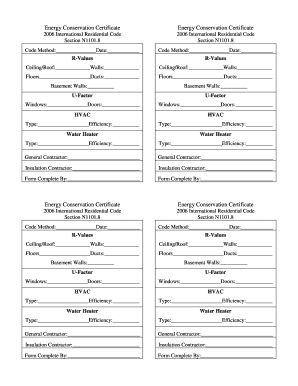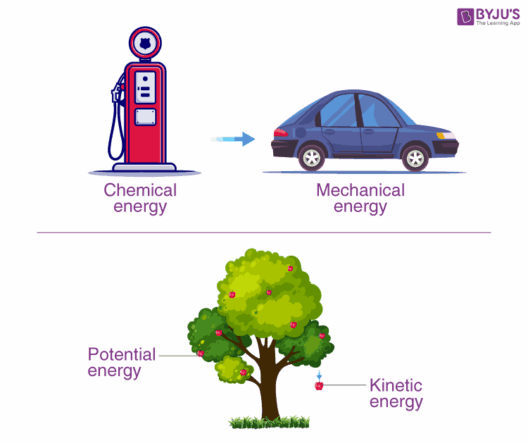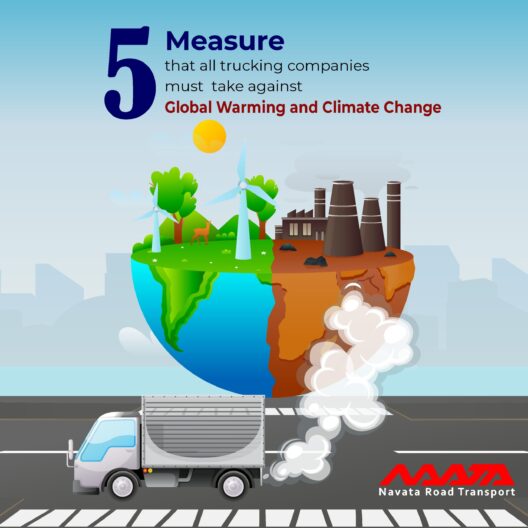As we navigate the increasingly complex world of environmental regulations, a pertinent question arises: Does Henry County in Georgia require the Energy Conservation Certificate? This inquiry holds significance not only for property developers but also for the residents who wish to embrace energy efficiency in their homes.
The overarching purpose of the Georgia Energy Conservation Certificate (GECC) is to promote energy efficiency across the state. This certificate serves as a testament to compliance with the energy conservation codes set by the state of Georgia, specifically outlined in the Georgia State Energy Code. In an era where climate change looms large over our planetary future, understanding these regulations becomes crucial for mitigating energy waste and fostering sustainable living.
To ascertain whether Henry County mandates the GECC, it is essential to delve into the broader framework of energy regulation in Georgia. The state has established specific guidelines that building designs must follow, particularly for new constructions and significant renovations. These standards are heavily influenced by the energy code developed to minimize energy consumption, thereby reducing greenhouse gas emissions.
In Henry County, local ordinances mirror state regulations, aligning with the goal of enhancing energy efficiency. When you contemplate the implications of these regulations, consider the broader environmental context. By enforcing energy conservation measures, local governments contribute significantly to the global fight against climate change.
The GECC is primarily required for residential buildings, but its influence extends beyond mere compliance. For homeowners contemplating renovations or new developments, awareness of the GECC not only ensures compliance but also enriches their understanding of sustainable practices. It signifies a commitment to a more energy-efficient future. This commitment is not merely a checkbox on a contractor’s list; it’s a pivotal component in supporting a healthier environment.
However, the complexities surrounding energy certification can prompt confusion. Many individuals may wonder whether the requirement for the GECC is uniformly enforced or if exceptions exist. In Henry County, while adherence to the Georgia Energy Code is generally expected, specific scenarios might offer leeway. For instance, small-scale renovations that do not significantly alter the energy efficiency landscape may not necessitate this certificate.
Intriguingly, understanding these nuances can empower citizens to make informed decisions regarding their properties. Those who acquire the GECC find themselves not only in compliance but also well-equipped to enjoy the benefits of reduced energy costs. This financial incentive can be a critical factor for many, prompting a shift toward energy-efficient practices that save money and enhance sustainability.
To further explore the implications of the Georgia Energy Conservation Certificate, let’s consider its direct benefits. For instance, properties that are certified tend to have elevated market value, a consideration that can entice prospective buyers who are increasingly conscientious about sustainability. In a climate-conscious age, homes that exhibit a commitment to energy efficiency often stand out in a crowded real estate market. This trend underscores the growing relevance of the GECC in local transactions.
Moreover, homeowners and developers who authentically engage with the energy conservation certificate find themselves at the forefront of a burgeoning movement toward sustainable architecture. Not only does the GECC serve as a regulatory requirement, but it also catalyzes a shift in mindset about building practices. A residence that conserves energy is not merely a structure; it becomes a participant in the narrative of climate responsibility.
Additionally, local government resources can help residents navigate the certification process seamlessly. Workshops, informational brochures, and community forums often aim to demystify energy codes and certificates. Engaging with such resources can enhance understanding and compliance while fostering community spirit centered on sustainability. Through collaboration and support, Henry County encourages its resilient residents to rise to the occasion, embracing the principles of energy conservation.
Nevertheless, a few critical considerations remain. One must contemplate the potential for legislative evolution. Given the urgency of climate change initiatives, Georgia’s energy policies may change as local governments respond to environmental needs. The possibility of stricter regulations or expanded requirements, including the necessity for the GECC, should always prompt vigilance and engagement among property owners and developers alike.
In conclusion, the necessity of the Georgia Energy Conservation Certificate in Henry County reflects a broader commitment to sustainable living and energy efficiency. The pathway to compliance not only opens the doors to regulatory alignment but also cultivates a deeper appreciation for innovative, eco-friendly building practices. By engaging with energy conservation initiatives and understanding the implications of certification, residents and developers alike contribute to a healthier planet.
Such a shift in perspective illuminates a truth many may overlook: energy conservation is no longer a peripheral concern but a central tenet in the fight against climate change. As Henry County moves forward, the commitment to the energy conservation certificate serves as a beacon of hope, steering the community toward a sustainable and responsible future.








